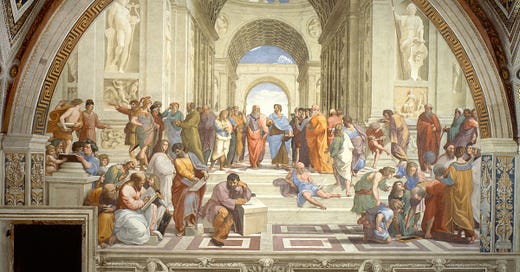The question about the nature of love has plagued philosophers from the ancient times to today. In this mini-series of posts, we trace the history of the concept of love from Plato and Aristotle through the Christian world to the Desert Fathers of the 5th century AD. In the next post, we will discuss the medieval and romantic concepts of love.
What is love?
From the ancient times to today, one question has plagued philosophers: What is love?
This question comes in many forms and guises: How can we properly define love? Is love the same as liking? If not, what is the difference between the two? Is love the same as friendship? Can love exist without friendship between the lovers? Can we love without being sexually attracted? Is Christian charity (often also called love) related to erotic love, and how? Can I truly love an animal, a country, a job or my car, or am I just misusing the word when I say these things? We talked about some of these issues in a previous post about the definition of love and another about the different kinds of love.
In this post, let’s have a look at the history of the concept of love – from the ancient times to today. Naturally, this will have to be very short, otherwise we’ll end up with something like Irving Singer’s three-volume textbook on the philosophy of love.
Keep reading with a 7-day free trial
Subscribe to Daily Philosophy to keep reading this post and get 7 days of free access to the full post archives.




